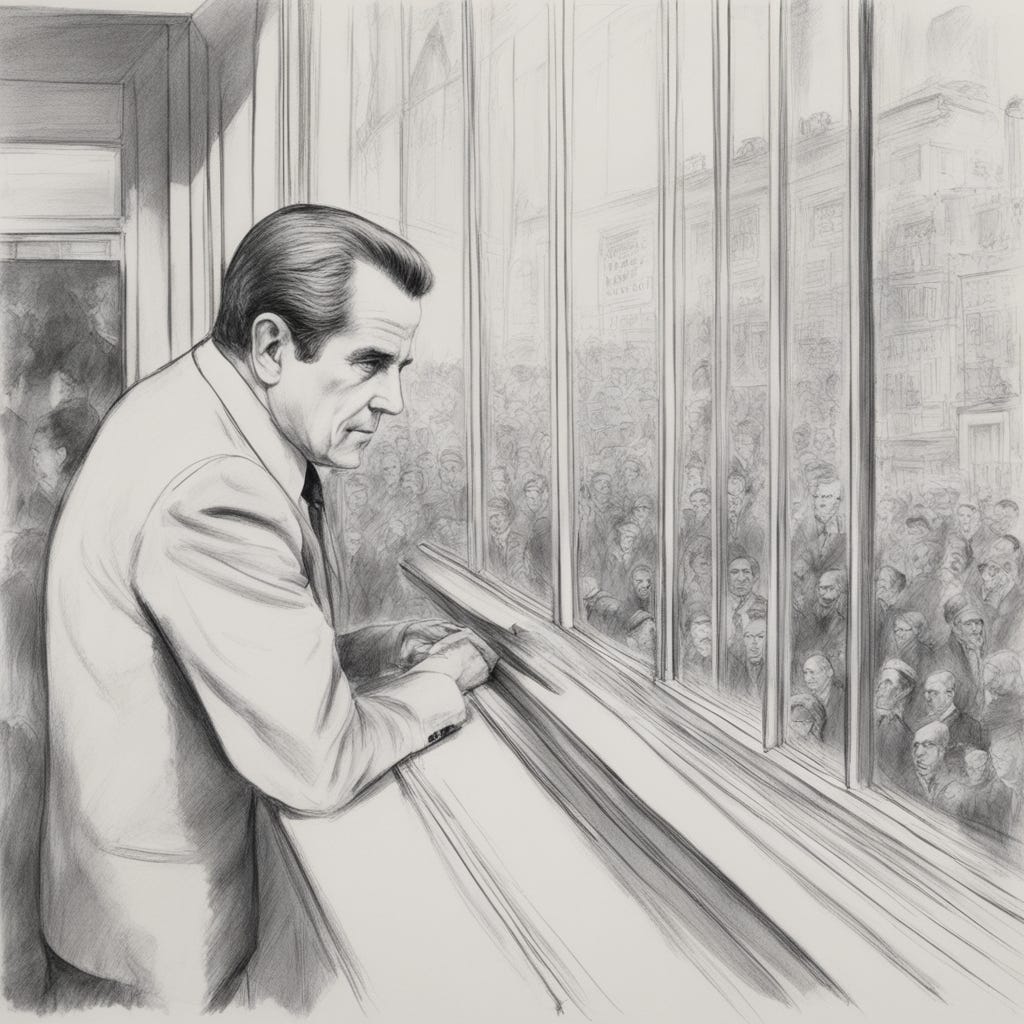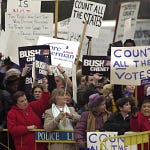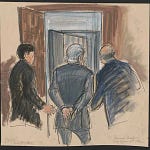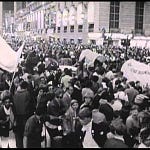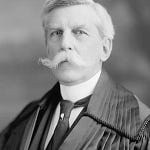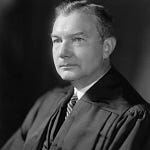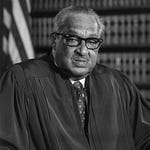On this day in legal history, November 9, 1970, the Supreme Court of the United States voted 6-3 in Massachusetts v. Laird not to hear the case of Massachusetts’ anti-draft law.
Massachusetts v. Laird was a landmark legal case that reached the United States Court of Appeals for the First Circuit and was not taken up by the Supreme Court, on this day in legal history. The case centered on the constitutionality of U.S. involvement in Cambodia during the Vietnam War without an official declaration of war from Congress. The Commonwealth of Massachusetts, along with other plaintiffs, including citizens and members of the military, challenged the executive authority, questioning whether President Nixon and his Secretary of Defense, Melvin Laird, had overstepped constitutional limits by ordering military operations in neutral Cambodia.
This legal challenge was rooted in the broader context of the anti-war movement of the late 1960s and early 1970s, which had gained momentum following the widespread draft for the Vietnam War and the subsequent expansion of the conflict into neighboring countries. The plaintiffs contended that such military actions without congressional approval violated the War Powers Clause of the U.S. Constitution.
The Nixon administration defended its actions by invoking the President's role as Commander in Chief, asserting the necessity of the Cambodian campaign to protect American troops and support the overall objectives in Vietnam. They argued that executive discretion in military affairs was essential for the conduct of foreign policy and national security.
The case was significant for its implications regarding the separation of powers and the checks and balances system. The central issue was whether the President had the unilateral power to commit American forces to combat in foreign nations without a formal declaration of war by Congress.
Ultimately, the First Circuit court decided in favor of Secretary Laird, upholding the administration's action. The court's ruling underscored the President's broad powers in foreign affairs and military operations, which became a subject of ongoing debate and eventually led to the passage of the War Powers Resolution in 1973. This legislation aimed to set boundaries on the President's authority to deploy U.S. forces without congressional consent.
Massachusetts v. Laird remains a pivotal case in American legal and political history, reflecting the tensions between executive power and congressional authority, as well as the limitations on state power as against federal, and the efforts to define jurisdictional limits in times of war.
Hogan Lovells has confirmed the acquisition of 28 partners from the recently dissolved law firm Stroock & Stroock & Lavan, including several former heads of practice groups. The announcement comes after Hogan Lovells indicated last month their intention to hire over 30 partners from Stroock, a move which preceded Stroock's decision to wind up operations after nearly a century and a half. Among the notable hires is Jeff Keitelman, Stroock's former co-managing partner and co-leader of its real estate practice. Other ex-Stroock leaders making the transition are Brian Diamond, Joseph Giminaro, Michael Kosmas, Christopher Doyle, Richard Madris, Jeffrey Uffner, and James Bernard, each a former head of various key practice areas ranging from real estate to tax certiorari, hospitality, corporate, infrastructure funds, tax, and general litigation. The majority of these partners, 23 in total, will bolster Hogan’s corporate and finance practice, while the remaining five will enhance its disputes practice. Hogan Lovells CEO Miguel Zaldivar emphasized the strategic nature of this acquisition, aiming to strengthen their presence in key markets such as New York and attracting high-performing talent to the firm.
Hogan Lovells Confirms 28 Partners Joining From Failed Stroock
During the civil fraud trial of the Trump Organization, evidence was presented showing Ivanka Trump's concerns about Donald Trump's wealth during a 2011 Florida golf course deal. She distanced herself from the company's valuation methods, stating she did not recall specific details about the financial statements. The New York Attorney General, Letitia James, is seeking over $250 million in penalties and potential control over Trump's properties, accusing the Trump family business of inflating asset values to mislead lenders and insurers. While Ivanka is not a defendant, her involvement in profitable deals, like the redevelopment of the Doral golf course and the Old Post Office, was highlighted. Contrastingly, her brothers and father are defendants, with her father admitting to inaccuracies in property valuations but denying their relevance to financial institutions. The trial featured Ivanka's composed testimony, differing from the defensive stance of her father and brother Eric. The judge's previous ruling found fraudulent practices within the organization, affecting Trump's property control, currently on appeal. This lawsuit is among four other criminal cases against Trump, who remains a strong contender for the 2024 Republican presidential nomination despite these legal challenges.
Trump's daughter worried he was not wealthy enough, emails in NY fraud trial show | Reuters
The U.S. House Oversight Committee, under Republican leadership, has escalated its impeachment inquiry into President Joe Biden by subpoenaing his son, Hunter Biden, and brother, James Biden, for depositions. This move follows allegations that the Biden family profited from policy decisions made during Biden's vice presidency. Hunter Biden's lawyer has dismissed the subpoena as a political maneuver but stated Hunter is willing to address the matters with the Committee. A former associate, Devon Archer, claimed Hunter Biden sought to create an impression of access to his father, citing multiple instances of putting Biden on calls with foreign associates. The White House has branded the investigation a smear campaign, with press secretary Karine Jean-Pierre stating it has found no evidence against the president after a year. The inquiry has been backed by former President Donald Trump, who is also facing his own legal challenges. The Oversight Committee, which has previously obtained financial records of the Biden family, has conducted a public hearing and plans to issue more subpoenas and interview requests. Hunter Biden has acknowledged his past struggles with substance abuse and has not held a White House or campaign position. The possibility of the House impeaching President Biden remains uncertain, despite the narrow Republican majority and the support of Speaker Mike Johnson for the inquiry.
US House Republicans subpoena Biden's son, brother to appear | Reuters
A recent study has shown that while artificial intelligence, specifically GPT-4, can speed up legal writing tasks for law students, it does not necessarily improve the quality of their work. The study, conducted by law professors from the University of Minnesota and the University of Southern California, observed that law students with lower initial grades benefited more significantly from using AI than their higher-achieving peers. The study titled "Lawyering in The Age of Artificial Intelligence" suggests AI could become an essential tool for lawyers, akin to legal research databases. Sixty law students participated in the study, receiving training on GPT-4 before completing writing tasks with and without the technology. The only task that showed a statistical improvement with AI was contract drafting. However, the use of AI notably reduced the time taken to complete these tasks, with tasks like drafting a complaint being completed 32% faster. The study recommends that law schools prohibit AI in foundational courses and exams, as it disproportionately aids lower-performing students, but also advises the development of advanced courses to teach effective AI usage.
AI improves legal writing speed, not quality - study | Reuters




